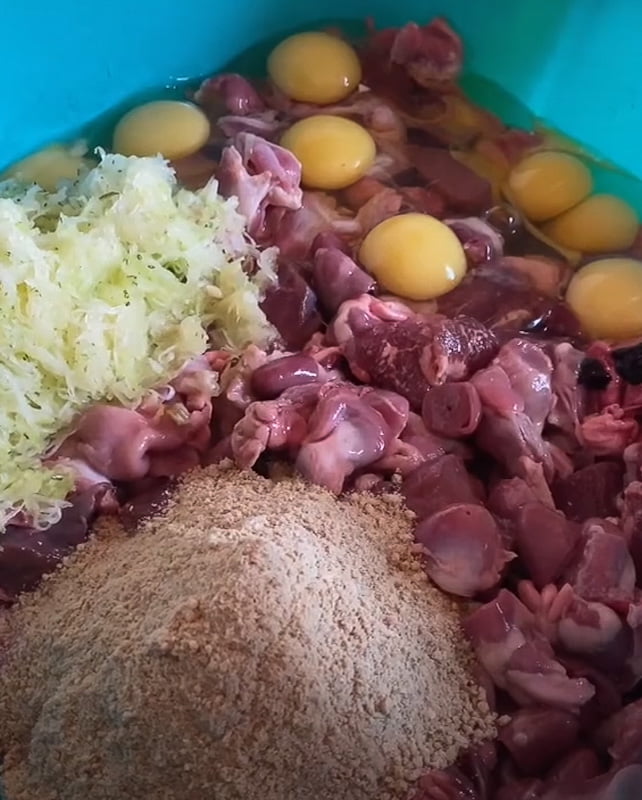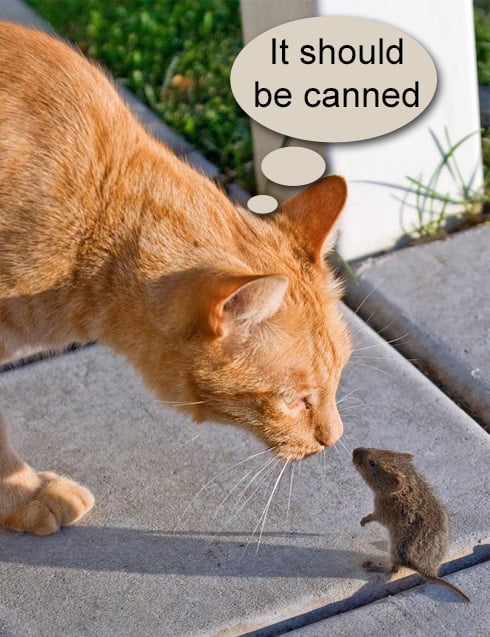Introduction
Raw meat properly handled, stored and prepared with correct supplements to ensure that it is balanced and complete is arguably the best cat food as cats are obligate carnivores as we all know but few people are in a position to successfully serve it up to their cats. There are strong arguments from afficionados that raw improves feline health and resolves health conditions such as IBD and other gastrointestinal conditions. It is going back to naturals which is quite appealing considering the artificiality of commercially manufactured, convenience cat foods.
RELATED: Try ground rabbit with supplement to cure feline inflammatory bowel disease (IBD)
Authors on websites have different points of view about whether domestic cat should or can eat raw meat. You haven’t got to look far. For example, Purina state that cats can eat raw meat but in moderation and there are risks of food poisoning. That is the sensible answer. There is also the risk of toxoplasmosis to cats and human. A website dedicated to cat food states that the “short answer is no”. They state that raw food contains pathogens detrimental to your cat’s health. A pretty blunt assessment.

And yet, many indoor/outdoor cats eat the best raw meat of all: the mouse. Veterinarians would all agree that the mouse is a great diet for a domestic cat except for the fact that they ingest worms at the same time! But you can deal with out through deworming.
This is really about compromise. But there’s another problem with cats eating raw meat supplied by their caregiver: it is an unbalanced diet. You can’t just throw raw meat at your cat and expect them to be healthy. Eating a mouse is not just eating raw meat. There are other nutrients in a mouse which makes the diet balanced. But raw meat from a butcher without more by way of supplements would be an unbalanced diet.

Ideals
This question is partly about ideals compared to practical solutions. As Dr Desmond Morris (Cat World) says, “the ideal diet for a modern cat would be canned vole or mouse – mostly meat, with some roughage, and with a little vegetable supplement, all in one neat package”.

Dr Morris suggests that such a product should be marketed and should be on the shelves of supermarkets because it would give domestic cats a natural food and help with the environment by removing rodents and pests. Clearly this is not the case at present. Perhaps it should be. But it is impractical as cat owners demand convenience and a more sanitized world.
Contamination
There is another reason why raw food should be available for cats but is not. It is because veterinarians don’t like cat owners preparing their own raw food diet which is mainly meat i.e. flesh. The veterinarians don’t like it because they are worried that cat owners are going to do it badly to the point where the cat is harmed or the food is stored in such a way that there’s cross contamination and where the owner or the cat is harmed due to a bacterial infection.
Too good?
There is another potential reason why we don’t have canned vole. It may be too good. Cats’ health may improve. Vets may object to it because there’d be less business. Am I being cynical? I think I am.
Looks disgusting! How a Maine Coon breeder makes raw cat food.
Raw done well is best?
It’s unlikely that an ideal raw diet will be produced in a can in the near future. But a superbly prepared raw meat diet with all the added supplements, which makes it completely balanced is the best diet for a domestic cat provided it is stored and served properly.
Convenience and practicalities
There is another point which is worth making. A highly popular form of cat food today is dry kibble – bags of dry cat food. It is extremely convenient. It’s the convenience which is the critical factor in selling these products. The consumer is the cat but the purchaser is the owner, a person.
The manufacturers have to please the purchaser and convenience foods are very purchasable. Even though dry cat food is not really that great for a cat if they eat nothing else because a cat’s natural diet contains 70% water and dry cat food falls well short of that.
This leads me to the question as to whether a cat guardian would accept opening a can of raw cat food with a couple of dead mice inside it. They may be mashed up and presented in a reasonably decent way but they’ll still be raw carcasses and I would suggest that it might be unacceptable to many purchasers although delicious to the consumer. Or perhaps the domestic cat has been conditioned beyond return to conventional cat food. The manufacturers don’t see a marketable product for these reason.
The point that I’m making is that the cat food market is a business and you can’t divorce the business side of it from the health and welfare of the cats that eat the product. Hopefully the two merge but they don’t always which is why dry cat food is so popular but less good than a well-balanced, well manufactured wet cat food.
I’ve deliberately focused on the general, philosophical issues which the question prompts rather going into heavy details about what ingredients should be in the food. You can find more about ingredients on this website. But the important point is that cat food must be balanced and it must be handled properly.
Will Demand for Species Appropriate Raw Diets Influence Traditional Pet Food Manufacturers?


Morris is never off target. His only potential weakness is that he was writing about cats 30 years ago and we know more now.
‘Cats are not carnivores’ – explain please. They are carnivores but they eat a small amount of plant material if eating naturally i.e. prey. Dry food given all the time is unwise as cats don’t normally drink enough to make up for the lack of water.
Doctor Morris is way off target on this one!
No! No! Cats are not carnivores! It’s a big myth! I only feed my cats special fish food biscuits with added Taurine; also Tuna in spring water… plus spring water for their drink. The are very healthy on this diet